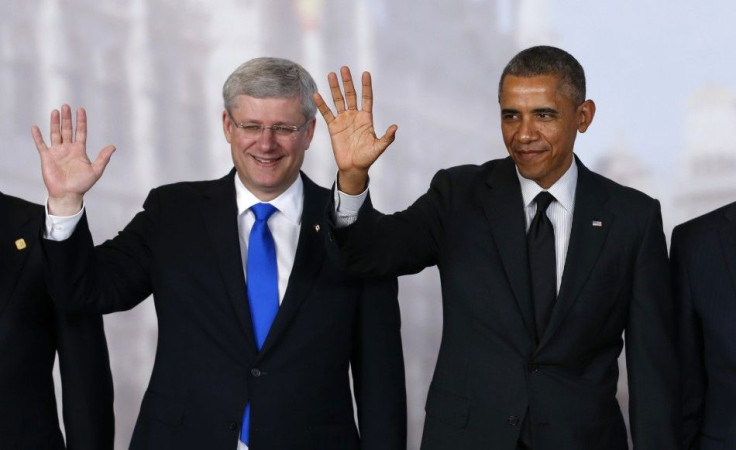US Blames Canada For Not Giving A Conclusive Offer In TPP Talks: Canada Reticent To Open Up Its Dairy Markets

The United States has expressed the concerns that Canada may be sidelined in the Trans Pacific Pact trade deal if it continues with its reticence to negotiate opening of its agriculture markets. The U.S. Agriculture Secretary Tom Vilsack told Reuters in Istanbul that apprehensions can be resolved as in the case of Japan, whose worries on rice exports are being resolved under a mutually agreed compromise.
Vilsack said. "I don't think you are going to see us say, 'You know what, we're not going to do TPP because we can't get exactly what we want on rice. There's that medium point and I think the folks have been working really hard to get to that point now,” he said.
Like Japan, Canada is also reluctant to put a final offer in the talks under the concern that U.S. lawmakers could pick them up afterwards. In the TPP talks, Canada's concerns hover around its dairy industry, where it is unwilling to lower the protectionist controls. No wonder, Ottawa has refrained from putting forth a "reasonable offer," as mentioned by Vilsack, ahead of a G20 meeting of agriculture ministers.
"We are rapidly concluding negotiations with most of the other countries, and in a sense, we have not started much of negotiation with Canada. You may wonder whether there is sufficient time to complete that negotiation,” the U.S official quipped.
Canada’s Compulsions
Canada's Trade Minister Ed Fast reacted sharply and said "if Secretary Vilsack wants to negotiate through the media, that's up to him. We're going to negotiate an agreement that is in Canada's best interests. That's all I have to say."
Canada is afraid that the concessions sought by other nations want it to make could pose problems for the ruling Conservatives in the October general election. Canada is under pressure to start dismantling protections for its dairy and poultry industry. The controls, in turn make imports expensive, reports Reuters.
Canada's dairy lobby is opposed to any radical change to the supply management system. Any dilution could cost the Conservatives dearly and loss of votes in agricultural areas that favour the right-of-center party will be the threat. But, time is running out for Canada as it has not revealed where it is ready to be flexible in TPP talks. Conservative minister Maxime Bernier said the government will protect supply management and continue to defend Canadian industries.
Obama’s Progressive Deal
The TPP is U.S. President Barack Obama's strategic trade deal to reach out to Asia and stonewall China's influence and the U.S. hopes it can add nearly $78 billion a year to U.S. economic output. TPP is expected go through a "fast track" legislation that will speed up trade deals with Congress lawmakers restricted to yes-or-no vote without the power to move fresh amendments.
(For feedback/comments, contact the writer at k.kumar@ibtimes.com.au)





















